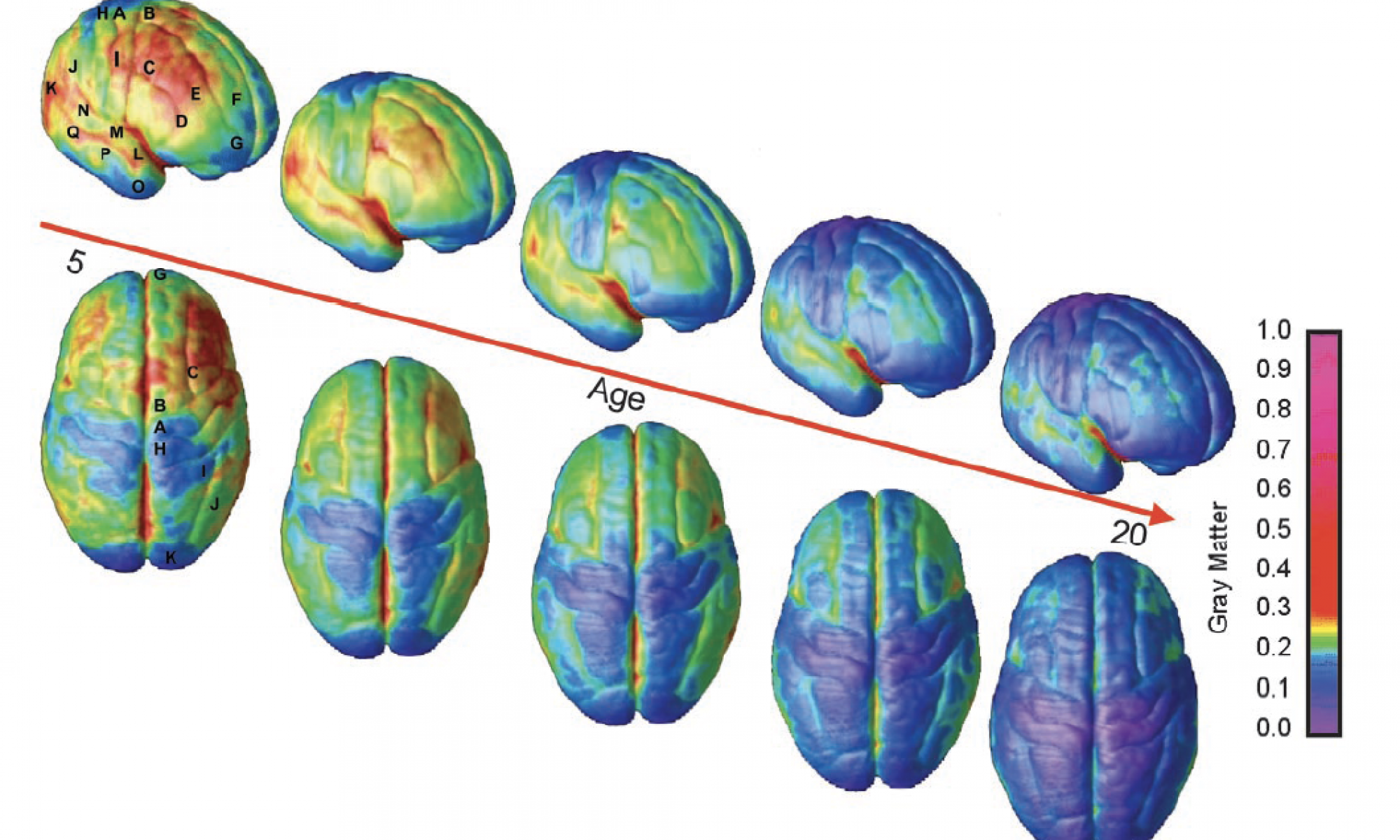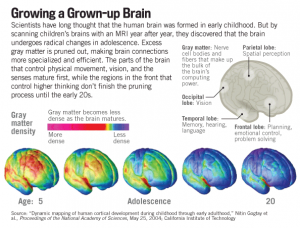The article “Why Are We So Nostalgic for Music We Loved as Teenagers? ” by Mark Joseph Stern further emphasizes the point that the music we listen to as adolescents shapes our neural pathways and influences our preferences in the future. It elaborates on how music not only stimulates the prefrontal cortex of our brains, therefore creating memories but also triggers the frontostriatal cortex which releases dopamine and other pleasure-inducing neurotransmitters.
During adolescent development, our brains are changing and the songs we enjoy the most are encoded in our memories due to the strong emotional connections our brain makes with them. The surplus of pubertal hormones adolescents experience heighten their emotions and encode strong emotional memory linked to music.
However, the article also addresses another psychological aspect of why our musical taste is so shaped by our adolescent years. It touches on how as people discover their identity throughout their adolescent years, music becomes a part of their self-image. Listening to music one loved during one’s teens and young adult years can allow one to go back in time and once again feel the joy and experience the memories connected to certain songs.
Overall, this article is a useful complement to the original article because it goes into further detail about how the songs listened to during one’s adolescent years influences their taste in music many years later.
Work Cited
Stern, Mark Joseph. “Why Are We So Nostalgic for Music We Loved as Teenagers?” Slate Magazine, Slate, 12 Aug. 2014.

